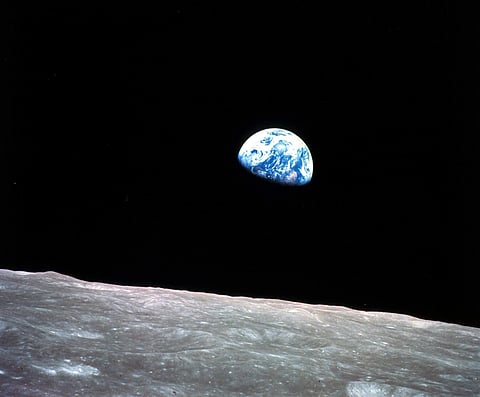

DHARWAD: Fruit flies from Dharwad are flying to space! The flies, with the scientific name Drosophila melanogaster, will be used in an experiment in space during the Gaganyaan manned mission, which is scheduled for next year. The flies have been developed by the Department of Biotechnology at the University of Agricultural Sciences (UAS), Dharwad.
It may sound strange, but fruit flies share about 77% of genes that cause diseases in humans. The flies are crucial to study the formation of kidney stones among astronauts in space.
Kidney stones are a common health issue among astronauts. Reports indicate that kidney stones have been observed in astronauts over 30 times during space missions. They experience an increased risk of kidney stone formation because of elevated calcium excretion from bone loss, increased urine acidity, consumption of dehydrated food, reduced urine output and other factors.
“Fruit flies are important to better understand how the molecular mechanisms work when kidney stones are formed among humans in space. The experiment will help come up with improved treatments, particularly for Indian astronauts,” said Ravi Kumar Hosmani, Assistant Professor at the UAS Biotechnology Department.
Adult flies may develop kidney stones in space
Using fruit flies also has other advantages, like their short lifecycle and low cost. The malpighian tubules or the main excretory organs of the inset closely mimic the human kidney in genetic composition, function, and structure, making it an excellent model for studying and quantifying kidney stone formation, Hosamani said.
“The adult flies are expected to develop kidney stones in space. Upon their return to Earth, we will dissect the malpighian tubules for further analysis in collaboration with the Indian Institute of Space Science and Technology (IIST) team,” he added. “We will feed fruit flies with sodium oxalate (NaOx), ethyle glycol (EG) and hydroxy L proline (HLP), and within 3-4 days flies will develop kidney stones,” he said.
The preparatory work has been going on for the last two years. A special kit to keep the flies in space is being developed by IIST, Thiruvananthapuram.
The Gaganyaan mission by the ISRO will send a crewed spacecraft into the Low Earth Orbit (LEO) of 400km altitude.
INTO VOID & BACK
Both male and female flies will be sent to space
The study to cost Rs 78 lakh
The specialised kit housing fruit flies will have food prepared with foodgrain powder
The astronauts, the flies and other payloads will land in Indian Ocean after the mission.